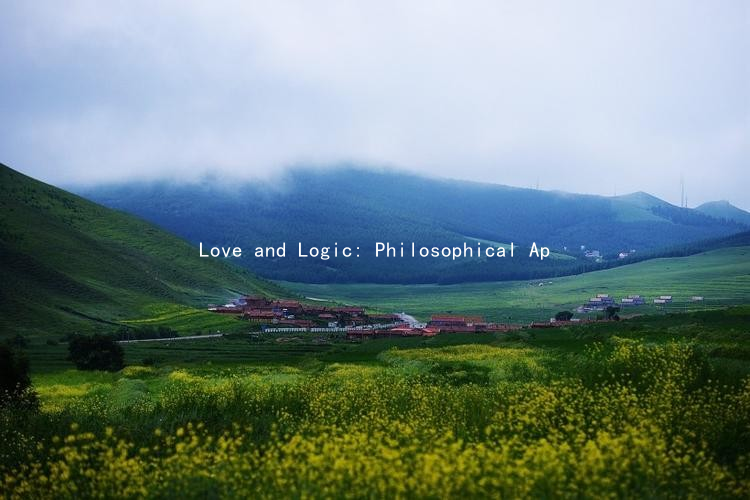Love and Logic: Philosophical Approaches to Sexual Communication
Love and Logic: Philosophical Approaches to Sexual Communication
In the complex world of romantic relationships, communication plays a pivotal role, especially when it comes to sexual intimacy. Understanding how to articulate desires, boundaries, and needs requires not just emotional intelligence but also a philosophical approach that combines both love and logic. This delicate balance can enhance connection, deepen trust, and nurture a healthy sexual relationship.
1. The Philosophy of Affectionate Dialogue
At the heart of intimate relationships lies affection, but how we express this affection through dialogue is equally crucial. An affectionate dialogue is rooted in empathy and understanding, acknowledging the partners feelings and desires. Philosophers such as Martin Buber emphasized the concept of I-Thou relationships, which suggest that true intimacy occurs when individuals engage with each other as whole beings rather than mere objects. This term encourages us to approach sexual communication as a shared experience—one that values the perspectives, feelings, and autonomy of both partners.
2. The Analytic Approach to Boundaries
While love fosters closeness, logic ensures that boundaries are respected. Philosophically, this can be linked to Immanuel Kant’s categorical imperative, which urges individuals to act in ways that respect others autonomy. This principle can be beneficial in sexual communication, as it encourages partners to openly discuss their limits and preferences without fear of judgment. Clarity in establishing boundaries not only empowers individuals but also lays a foundation for trust. Discussing consent and preferences openly illustrates a commitment to mutual respect and responsibility in the relationship.
3. The Art of Vulnerable Expression

Navigating the often sensitive terrain of sexual needs requires vulnerability. Existentialists, like Jean-Paul Sartre, posited that authenticity in relationships is vital. To communicate desires authentically, one must be willing to expose their vulnerabilities and fears. This might involve admitting insecurities about body image or discussing past negative experiences. Such vulnerable expression can foster greater intimacy and understanding, provided it is met with compassion by the other partner. Utilizing “I statements” (e.g., “I feel” or “I need”) can transform potentially awkward conversations into profound connections.
4. The Role of Active Listening
Effective communication is not just about speaking but also about listening. The Stoics taught the value of being present and mindful, which is essential in romantic relationships. Active listening involves engaging fully with your partners words, demonstrating comprehension and empathy, and responding thoughtfully. This practice can lead to deeper insights into each others desires and concerns, paving the way for a more satisfying sexual connection. When both partners feel heard and understood, emotional barriers melt away, creating an atmosphere conducive to open sexual dialogue.
5. Embracing the Fluidity of Desire
Philosophical perspectives can also illuminate the fluid nature of human desire. Theories from kinesthetic philosophy advocate for recognizing that desires can evolve, shaped by experiences, emotions, and mutual exploration. This aligns with the notion of sexual fluidity, suggesting that interests may change over time. Open discussions about fantasies, preferences, and experimenting with new ideas can enhance the relationships vibrancy. Acceptance of this fluidity encourages a culture of exploration rather than one of stagnation or rigidity.
6. Conclusion: The Symphony of Love and Logic
Incorporating philosophical approaches into sexual communication emphasizes that love and logic are not opposing forces but rather complementary elements that create a harmonious bond. By engaging in affectionate dialogue, respecting boundaries, expressing vulnerability, practicing active listening, and recognizing the fluidity of desire, partners can cultivate a robust sexual relationship grounded in mutual respect and understanding. Ultimately, the philosophical journey through love and logic offers a distinct roadmap for navigating the nuances of sexual communication, benefiting both partners and nurturing the intimate connection that lies at the heart of their relationship.





